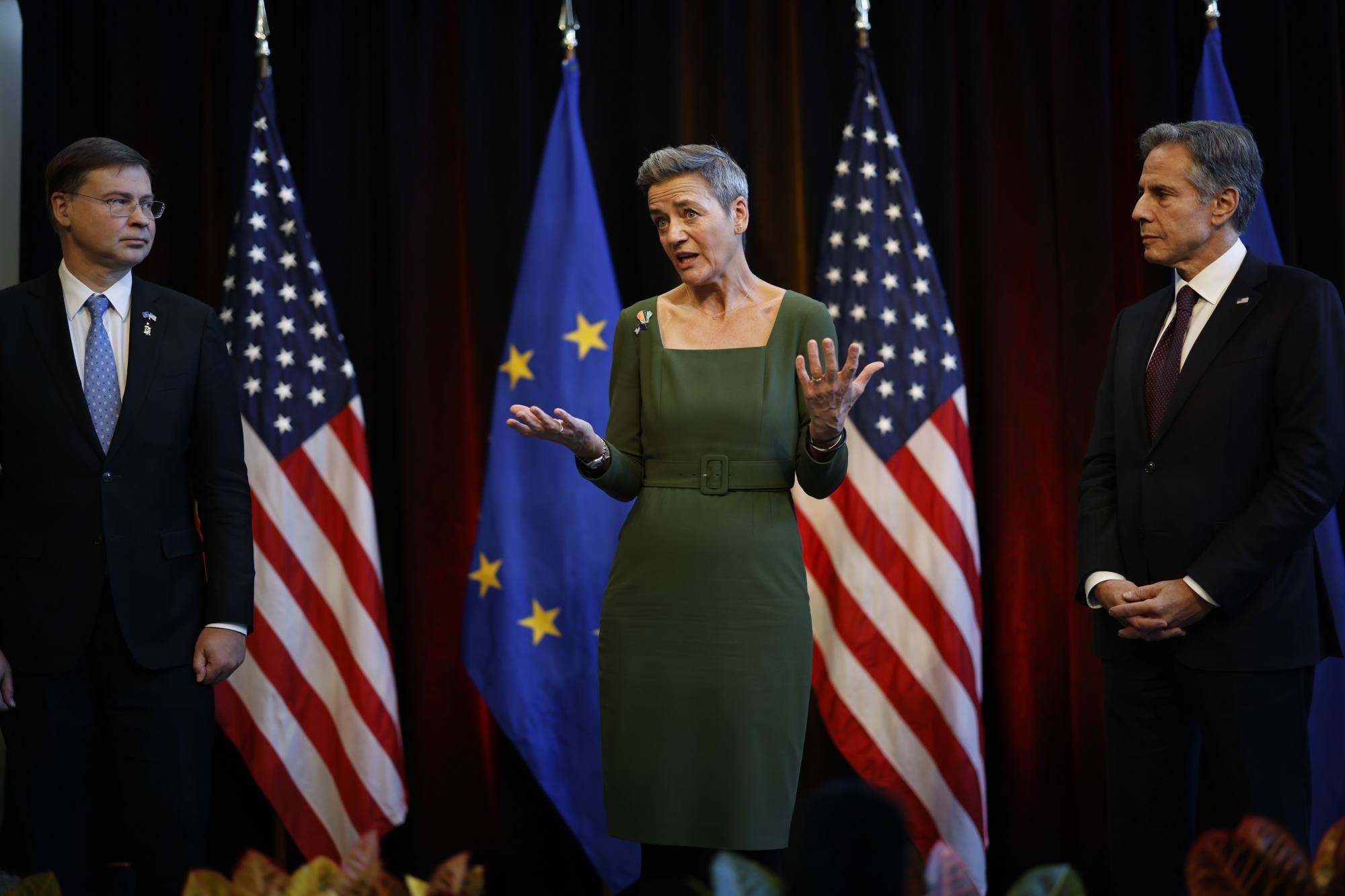
Instead of blocking China’s tech development, US and EU can learn from its AI governance
- The EU-US Trade and Technology Council looks set to focus on restricting China’s access to sensitive tech at its coming meeting
- While Europe’s ambition to be a leader in digital policy is well known, China’s swift implementation of AI regulation holds lessons for both the US and EU
At the meeting, the partners will look to limit US and EU companies’ overseas investment to prevent sensitive technology – AI, quantum computing and biotechnology – from benefiting strategic rivals.
The draft statement says the US and EU will commit to addressing non-market practices, including coordinating export controls on semiconductors and other “sensitive items”, and will hold regular discussions on preventing their companies’ knowledge from supporting the technological advancements of strategic rivals.
For instance, AI can enhance not only weaponry but also population surveillance and control. For EU policymakers, balancing economic cooperation with China against addressing these multifaceted risks, while under intense pressure from the US, is a major challenge.
The transatlantic partners have also embarked on a complex journey to counter outside manipulation of their data. In trying to design a joint road map to manage AI risks and set up regulatory frameworks, the US and the EU are likely to focus on countering the threat posed by Chinese practices that are deemed manipulative or intrusive.
The Trade and Technology Council was launched on June 15, 2021, by European Commission President Ursula von der Leyen and US President Joe Biden. At its core, it represents an effort to align the allies’ approaches to key issues, such as trade dynamics, economic strategies and emerging technologies.

These differing priorities are giving rise to a tug of war, with each side seeking to assert its agenda while grappling with the intricacies of the partnership. The US interpretation of the talks’ agenda appears to be gaining traction, as Washington’s efforts to rally Brussels in its battle against China resonate more strongly.
China is emerging as a prominent player. Contrary to the prevailing public perception that the EU holds the mantle of technological guardianship on the global stage while Asia is the “wild, wild West” where individual data rights and privacy are disregarded, China has been making significant strides in AI regulation.
China’s swift implementation of AI regulation is remarkable, especially when compared to the typically lengthy processes observed in the US and in EU countries. As Beijing continues to refine its data and tech regulatory framework, it is likely to serve as a model for AI regulation worldwide, influencing and shaping the global governance of the field.
While China has established comprehensive data regulation policies, the US, in contrast, has yet to develop a national approach to data regulation and AI management.
Instead of learning from the robust Chinese regulatory framework for AI governance and working on addressing the issues in the US and the EU’s own systems, it is disappointing that the fourth Trade and Technology Council meeting plans to focus on countering China.
Dr Imran Khalid is a freelance contributor based in Karachi, Pakistan

